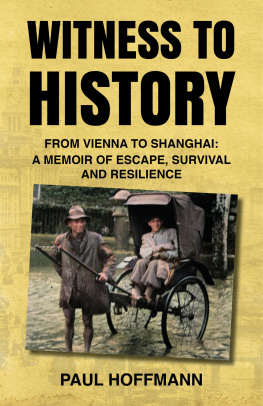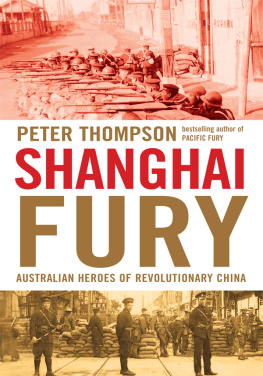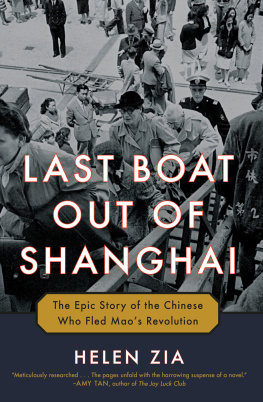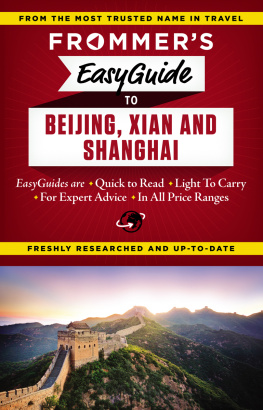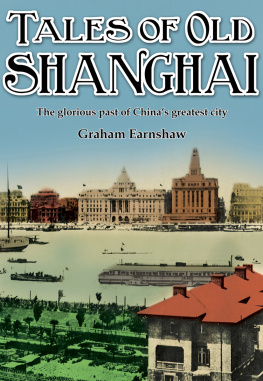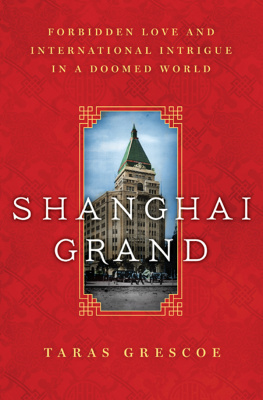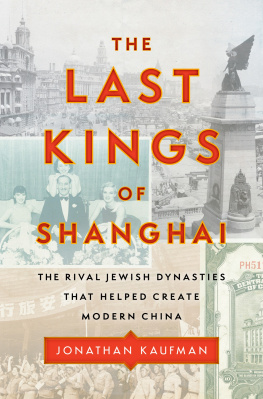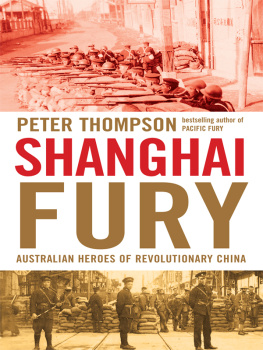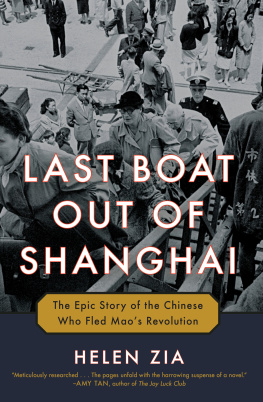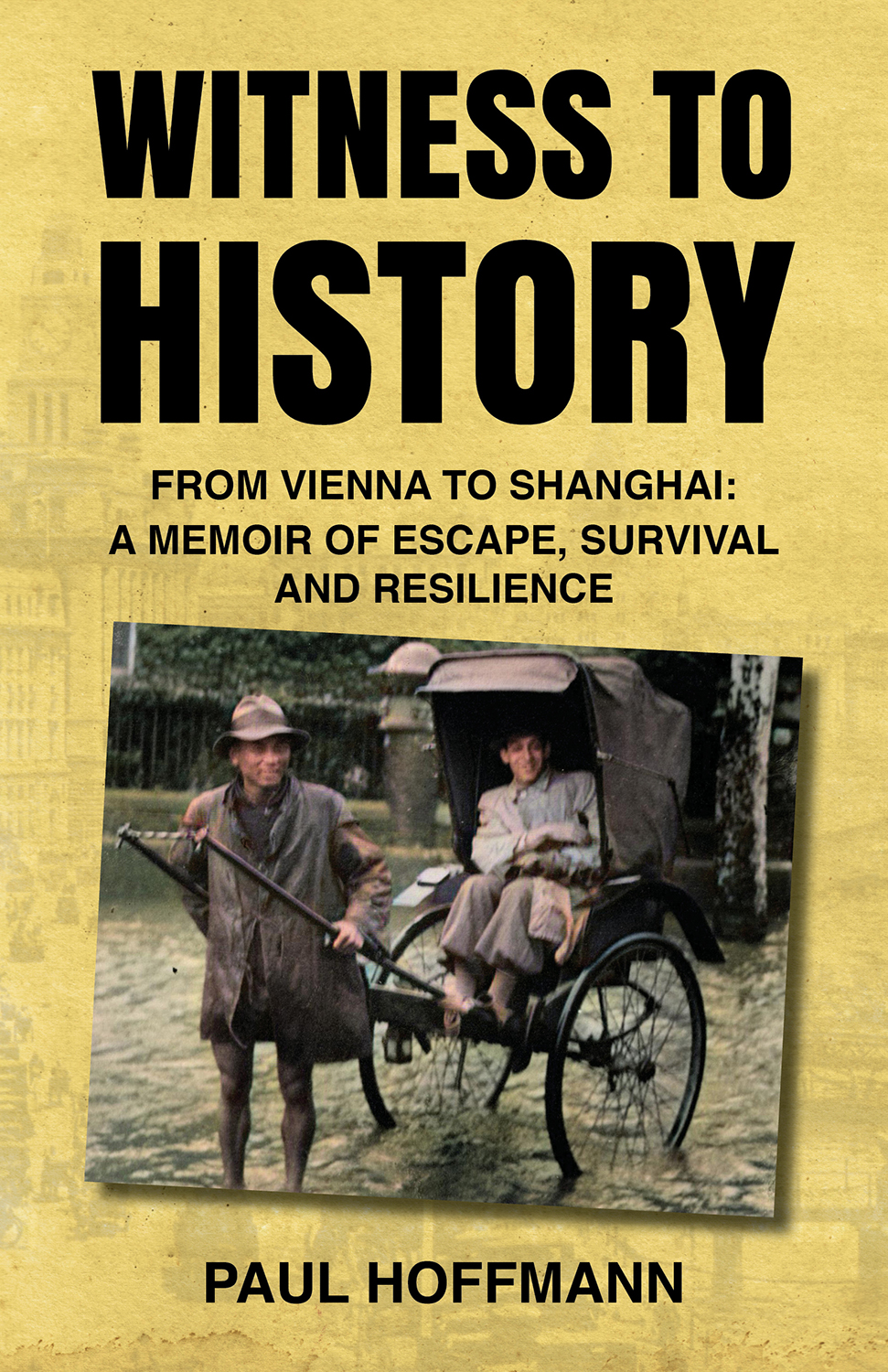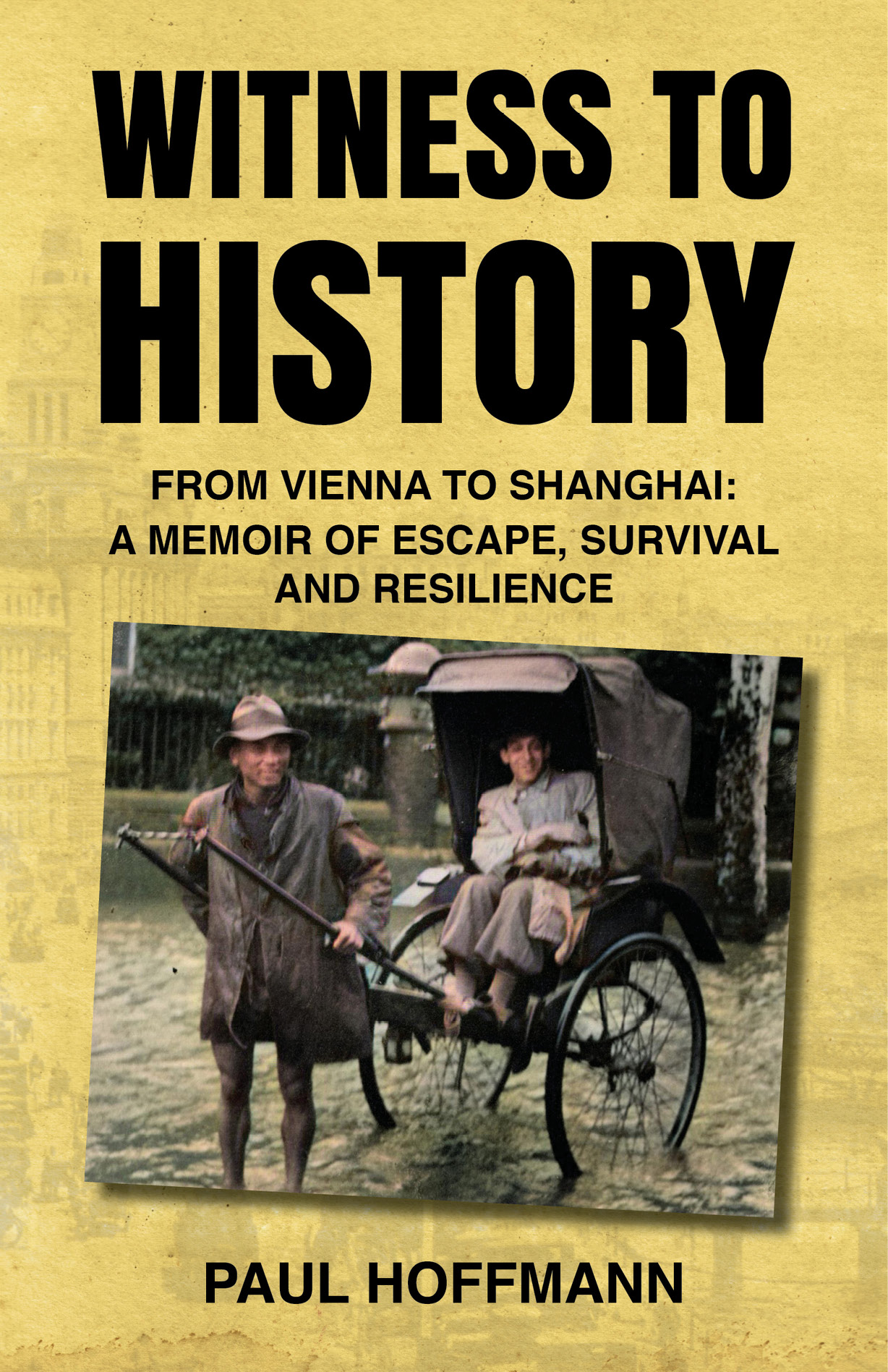

Witness to History
By Paul Hoffmann
Edited by Jean Hoffmann Lewanda
ISBN-13: 978-988-8552-58-0
2021 Paul Hoffmann
BIOGRAPHY & AUTOBIOGRAPHY
EB148
All rights reserved. No part of this book may be reproduced in material form, by any means, whether graphic, electronic, mechanical or other, including photocopying or information storage, in whole or in part. May not be used to prepare other publications without written permission from the publisher except in the case of brief quotations embodied in critical articles or reviews. For information contact info@earnshawbooks.com
Published by Earnshaw Books Ltd. (Hong Kong)
In Memory of
My parents Paul and Shulamis Hoffmann
Two of the most courageous
and
My husband Doug Lewanda
Who taught me to be brave
Foreword
The following story is my fathers story. A fathers story is never his alone. It belongs to all who love and know him. My father, Paul Hoffmann, intended this memoir to be a continuing chronicle of our family history. In its telling, it became a personal narrative of some of the most dramatic, intense and important events in world history. Born in Vienna, he moved to Shanghai in 1938 at the age of eighteen, and moved on from there to the United States in 1953. Dad was not only a reporter and observer of the events post-World War I, during World War II, and following the Communist take-over of China, he was a participant.
I cannot remember a time that I was not aware of my Austrian, Russian, Jewish, and Chinese heritage. Our home was decorated with beautiful carved Chinese furniture and tapestries. We consistently celebrated Jewish holidays every year. There was an endless parade of family and friends from all over the world, most of whom spoke English, but often reverted to the comfort of Russian and German when they came together with their landsmen. Our American neighbors often said they felt like they were at the United Nations when they crossed our threshold.
But there was more than the day-to-day exposure to a variety of cultures that influenced the young lives of my older brother, Abe, and me. There were the stories of life in Vienna and Shanghai and the subsequent flight from those former homelands, that were shared with the same frequency as the Exodus from Egypt at the Passover Seder. There was the constant awareness that we must stay vigilant to the events of the world. As a seven-year-old child, I vividly remember watching the trial of Adolf Eichmann on television with my fathers commentary in the background. I can hear my father telling my mother to stock up on canned goods due to the uncertainty created by the Bay of Pigs Invasion. The implied message, even at an early age was: know who you are, be aware of what is happening around you and never assume that what is happening in the world is not your problem.
Dad began this memoir sometime after his retirement from his position as Trademark Counsel for General Electric Company in March 1986 and wrote his concluding comments in November 1998. Despite many years of challenges and struggle, he considered his to be a life well-lived and concluded with the wish that his children and grandchildren would also be able to say, What a life I had! After his passing in March of 2010, I not only rediscovered the manuscript of his memoir, but a wealth of documents and photographs covering over a hundred years of both family and world history, and the importance of his message was reignited.
It is in the memory of my father, Paul Hoffmann and my mother, Shulamis Froloff Hoffmann, and their wish that we be citizens of the world, that I share my fathers story.
Jean Hoffmann Lewanda
May 2021
The Hoffmanns
When I was a boy of fifteen or sixteen years of age growing up in Vienna, Austria, a Hoffmann family chronicle surfaced. I was fascinated by it because it was in the form of anecdotes, rather than the usual enumeration of names, births, marriages, and death dates. Thus, I thought that I, in turn, should provide for my children and grandchildren a history of the family, particularly since I lived through some of the most turbulent times the world has ever known. The recollections of my grandparents and my own experiences cover more than one hundred and forty years, an amazing length of time, given the fantastic changes that have taken place in the world within that time span.
According to the chronicle, which disappeared with the dispersal of the family after 1938, the Hoffmanns lived in Frankfurt, Germany in the 1600s. Whether they came from Spain after the expulsion of the Jews from that country during the Inquisition is pure speculation. Why the Hoffmanns moved East around the year 1630 is also unknown. The first documented fact is that my great-grandfather Alexander Hoffmann, married Julie Knoepfelmacher (which means button maker) in 1851 in the Hungarian village of Luky, now located in the Czech Republic, about fifty miles from Vienna.
Two anecdotes from the chronicle are clearly fixed in my memory. One told the story of how one of my ancestors lent money to the Empress Maria Theresa of Austria to build the famous Schonbrunn Palace, the main summer residence of the Habsburg Family. That would place a Hoffmann ancestor in Vienna around the year 1750.
The other story was about an ancestor who came to Vienna to sell cattle in the 1850s. Having completed his transaction, he went to the coffee house, as was typical of the Viennese. He observed a card game, joined in, lost all the money he had earned from the sale of the cattle, and then decided to drown himself in the Danube.

Salomon and Jeanette Hoffmann
The story of our family started for me with the birth of my grandfather, Salomon Hoffmann, born on November 23, 1855 as the second child of Alexander and Julie Hoffmann. Alexander and Julie had six children. Their first two children, Israel and Judah, did not live past the age of two. Their four surviving children were one girl, Mindl, and three boys, Salomon, Isidor and Benjamin. Sometime after 1861, Alexander, who was a rabbi, moved his family to Vienna. I know very little about my Grandfather Salomons youth or education. He told me he was in the Austrian army and described how the defenders of a city in the Balkans threw boiling pitch on the attackers. This was one of the many stories he told. Salomon married his cousin Jeanette Knoepfelmacher, around 1880. Jeanettes father, Jonas Knoepfelmacher, was also a rabbi.
I also dont know much about my grandfathers career. It was my understanding that he was the first custom peddler in Vienna. In any event, he was able to bring up seven children. My father, Oskar, fourth child of Salomon and Jeanette, told me that when he was a medical student he had to help his father by collecting weekly installments from customers. The reception from the customers when Father came to collect the installments was not always pleasant. Being Jewish did not help when one was asking for money. I never knew my Grandfather to work. I was told that when Grandfather was sixty years of age, he decided to retire and let his children support him. There was no social security in 1913. He was a lovable old gentleman and everyone liked him very much. He was a director of his synagogue, a rather large one, and I remember how proud he was to show off his grandchildren when they came to the synagogue on the High Holidays. I also remember being present when my Hoffmann grandparents celebrated their 50th wedding anniversary, a rare event in the early 1930s.

